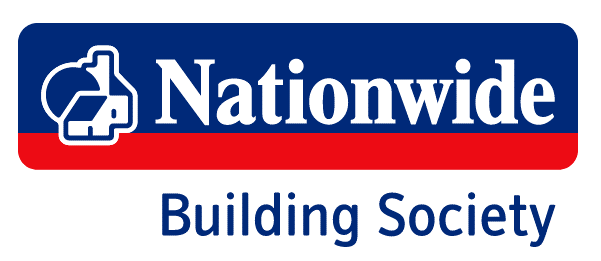
Find out if equity release Nationwide is ideal for you in 2025.
- It can be used to pay off your existing mortgage
- Free 3rd party home valuation
- Borrow up to 65% of the value of your home
- 5.11% fixed for life
- No redemptional penalties
- No lender fees
- No advisor fees
- The Full open market valuation applied to all property titles, including flats and other leaseholds.
Equity release nationwide reviews


Equity release nationwide calculator


Nationwide equity release options


Lifetime mortgage retirement Nationwide


Nationwide building society equity release


Nationwide equity release interest rates


Nationwide equity release scheme


Nationwide equity release rates


Introduction To Equity Release Nationwide
Are you a retired homeowner looking to boost your finances without leaving your home? Equity Release Nationwide might be the perfect solution for you. With a range of options including lifetime mortgages and retirement interest-only mortgages, it’s never been easier to unlock tax-free cash from your property.
In this blog post, we’ll explore how Nationwide can help you access the equity in your home, along with the benefits and potential risks involved.

- Equity Release Nationwide offers various options, including lifetime mortgages, retirement interest – only mortgages (RIO), and retirement capital and interest mortgages, allowing retired homeowners to release some of the equity in their homes without having to move out.
- Eligibility for equity release with Nationwide requires homeowners to be aged 55 or over, own their property outright or have a small outstanding mortgage balance, and have a specific minimum property value.
- With its No Negative Equity Guarantee, optional inheritance protection feature, access to tax-free cash, fixed-interest rates for life on all plans except RIO Mortgages and many other benefits offered by different plans; equity release with Nationwide provides flexibility for retirees in managing finances during retirement while retaining ownership of their homes.
Understanding Equity Release
Equity release is a financial product that allows UK property owners aged 55 and over to release some of the equity in their home, either as a lump sum or in several installments.
Definition
Equity Release is a financial solution designed specifically for retired homeowners in the UK, allowing them to access the wealth tied up in their property without having to sell or move out.
There are two main types of equity release products: lifetime mortgages and home reversion plans. A lifetime mortgage involves taking out a loan secured against your property while retaining full ownership.
The interest accrued on the loan can either be paid monthly or added to the total loan amount (roll-up interest), with the capital and interest ultimately repaid when you pass away or move into long-term care.
On the other hand, a home reversion plan entails selling all or part of your property at less than its market value in exchange for a lump sum payment, regular income, or both.

Types Of Equity Release Plans
Equity Release comes in various forms, designed to suit the diverse needs and preferences of UK retired homeowners. It is important to understand the different types of equity release plans available to make an informed decision.
- Lifetime Mortgage: A type of loan secured against your property where interest is either rolled up or paid monthly, with the amount repaid when you die or move into long-term care.
- Home Reversion Plan: This involves selling a percentage or the entirety of your property to a reversion company in exchange for a tax-free lump sum or regular payments, while retaining the right to live in your home rent-free for life.
- Retirement Interest-Only (RIO) Mortgage: A mortgage option that allows you to pay off only the interest on a monthly basis, with the outstanding loan amount due upon death or moving into long-term care. Suitable for those who have stable income during retirement.
- Retirement Capital and Interest (RCI) Mortgage: Combines both capital repayment and interest payment elements within one mortgage product. The outstanding loan balance reduces over time as you make monthly repayments that cover both principal and interest amounts. Ideal for those looking for a structured way to pay down their mortgage debt during retirement.
- Pensioner Remortgage: Refinancing a pre-existing mortgage for homeowners aged 55 or over by taking out a new pensioner mortgage product that offers better terms, rates, or features.
- Drawdown Lifetime Mortgage: A flexible version of lifetime mortgages that allows borrowers to withdraw cash from their property’s value incrementally rather than receiving a lump sum upfront. This can help minimize interest accumulation.
Each plan comes with its own set of benefits and risks; therefore, it’s essential to seek professional advice and compare options before deciding on an equity release plan tailored to your individual circumstances.

Eligibility Criteria For Equity Release
To find out if you’re eligible for Equity Release with Nationwide, read on to learn about the age, property ownership, and property value requirements.
Age
Age plays a significant role in determining eligibility for equity release plans, as it directly impacts the amount of money that can be released from your property. In the UK, the minimum age requirement to apply for an equity release product is set at 55 years old.
However, it’s essential not to overlook the fact that most equity release providers cater primarily to applicants within specific age brackets – typically between 60 and 85 years old.
This implies that those under this threshold may have restricted options when exploring pensioner remortgages or retirement mortgages. For instance, Nationwide offers its lifetime mortgage product starting from age 55 but requires borrowers to be over 60 when applying for their Retirement Interest-Only (RIO) mortgage product.

Property Ownership
To be eligible for equity release with Nationwide, you must own your property. This means that if you have a mortgage, it needs to be paid off first before you can access any of the equity.
Additionally, the value of your home will also determine how much cash you can access through an equity release plan.
It’s important to note that if there are multiple owners on the property title, all parties need to consent to an equity release plan. For example, if a married couple jointly owns their home and wants to take out a lifetime mortgage with Nationwide, both partners need to agree and sign off on the decision.
Property Value
The value of your property is an essential factor when considering equity release options. Equity release lenders will typically allow homeowners to borrow a percentage of their property’s value, with the maximum amount depending on your age and health status.
For instance, Nationwide offers lifetime mortgages of up to 55% of the property’s value for homeowners over 60 and up to 50% for those aged between 55-59 years old. This means that if you have a house valued at £500,000 and are eligible for a lifetime mortgage, you could get up to £275,000 in tax-free cash from Nationwide.
It’s worth noting that interest rates may vary depending on how much you borrow against your home’s value.

Nationwide’s Equity Release Options
Nationwide offers various equity release options, including lifetime mortgages, retirement interest-only mortgages (RIO), and retirement capital and interest mortgages. Each option has its unique features that cater to different needs.
Lifetime Mortgage
A lifetime mortgage is one of the most popular types of equity release plan in the UK, and Nationwide offers this option as part of its equity release schemes. With a lifetime mortgage, you can borrow against the value of your home while still being able to live there for as long as you like.
The amount borrowed plus any accrued interest is typically paid back when you either sell your home or pass away.
One significant benefit of choosing a lifetime mortgage with Nationwide is their No Negative Equity Guarantee. This means that if the sale proceeds from your property aren’t enough to repay the outstanding balance of your loan due to house price changes or other factors outside your control, neither you nor your beneficiaries will be responsible for paying the shortfall – Nationwide will write off.

Retirement Interest-Only (RIO) Mortgage
Nationwide offers a Retirement Interest-Only (RIO) Mortgage as part of their equity release options. This type of mortgage is available exclusively to existing customers over the age of 60, and it allows borrowers to borrow against the value of their property without having to make any monthly repayments.
Instead, interest on the loan is added up and paid back when the property is sold or upon death.
One significant advantage of this type of mortgage is that retirees can access tax-free cash while still living in their homes without worrying about meeting monthly repayment obligations.

However, there are risks involved in equity release schemes, such as potentially decreasing inheritance and impacting state benefits entitlements. Therefore, it’s essential to seek professional advice before making any decisions regarding releasing equity from your home.
Retirement Capital And Interest (RCI) Mortgage
Another type of mortgage offered by Nationwide for equity release is the Retirement Capital and Interest (RCI) Mortgage. This option allows retired homeowners to borrow money against their property while making monthly repayments on both interest and capital.
The RCI mortgage offers a range of fixed rate options for ten years or two-year tracker rates with corresponding Annual Percentage Rate of Charge (APRC) rates. With this option, homeowners have more control over their finances as they are required to make regular payments, unlike lifetime mortgages where interests accumulate until the end of the term.

Benefits Of Equity Release Nationwide
Equity release with Nationwide offers a range of benefits, including tax-free cash access, no negative equity guarantee, optional inheritance protection, and the ability to stay in your home – read on to discover how these benefits could improve your retirement.
Access To Tax-Free Cash
One of the key benefits of equity release with Nationwide is that homeowners can gain access to tax-free cash. This means the amount of money they receive from their loan is not subject to income tax, which can be a significant advantage for those living on a fixed income in retirement.
The amount of tax-free cash available through equity release is based on several factors, including the homeowner’s age and how much equity they have in their property.
Accessing tax-free cash through equity release could provide retirees with extra funds to cover expenses such as home renovations or healthcare costs, without having to dip into their savings or rely solely on pension income.

No Negative Equity Guarantee
One of the most significant benefits of equity release for UK retired homeowners is the “no negative equity guarantee.” The guarantee ensures that the estate of the owner will never owe more than what their property is sold for, even if it’s less than the amount borrowed.
Thankfully, Nationwide Equity Release offers this crucial benefit. However, it’s worth noting that most providers now offer a no-negative-equity guarantee for equity release plans.
The Equity Release Council provides a no negative equity guarantee for all plans their members offer.
Optional Inheritance Protection
For those who are concerned about leaving an inheritance to their loved ones, Nationwide’s Equity Release plan offers an optional Inheritance Protection feature that can help ease those worries.
With this option, homeowners can ring-fence a portion of the value of their property as a guaranteed amount for their beneficiaries to receive after they pass away and the loan has been repaid.
It is important to note that taking out equity with any lifetime mortgage will reduce the amount of inheritance left for loved ones. However, Inheritance Protection in place gives individuals more control over how much is safeguarded for future generations.

No Need To Move Out Of Your Home
One of the biggest advantages of equity release with Nationwide is that you can continue to live in your home, making it an ideal solution for retired homeowners who are looking for extra cash without having to move.
With equity release, you can access funds from the value of your property without having to sell it or downsize. This means you get to enjoy the comfort and familiarity of your own home while also unlocking its potential as a source of income.
Moreover, by opting for Nationwide’s lifetime mortgage or retirement mortgage options, you retain full ownership of your property throughout the term of the loan. Upon death or when selling up/downsizing after moving into permanent care – whichever comes first – proceeds from Equity Release cover all outstanding mortgages and accrued interest charges before being passed on to beneficiaries named on homeowner’s Will (or through intestacy).

Risks Involved In Equity Release
Equity release may decrease inheritance, the potential impact on state benefits, and the possibility of negative equity.
Decrease In Inheritance
Equity release can allow retired homeowners to access cash by releasing some of the value tied up in their homes. However, one potential drawback is that it may reduce the amount of inheritance that beneficiaries receive.
This is because the equity release loan and interest will need to be repaid from the proceeds of selling the property when the borrower dies or moves into long-term care.
While this decrease in inheritance may not be ideal, some people consider it a fair trade-off for accessing tax-free cash and remaining in their homes during retirement.

Impact On State Benefits
It’s important to consider the impact of equity release on your eligibility for state benefits. This is because releasing funds from your property could affect your means-tested benefits such as Pension Credit or Council Tax Reduction.
In addition, if you receive universal credit, this may also be affected by any extra income gained through equity release. It’s crucial to seek professional advice and understand how your entitlements might change before deciding on equity release.

Possible Negative Equity
One of the biggest risks involved in equity release is the possibility of negative equity. This means that the debt could end up being more than what your property is worth, leaving nothing for your heirs to inherit.
It’s essential to weigh the benefits against the risks before deciding on an equity release plan; seeking professional advice can help you make informed decisions. Falling victim to negative equity is one of the five most common horror stories associated with equity release, so it’s crucial to understand all potential outcomes before making any commitments.

How To Choose The Right Equity Release Plan
To choose the right equity release plan, seek advice from a professional, research different providers, and compare rates and fees.
Seek Professional Advice
It’s crucial to seek professional advice when considering equity release. With so many different options available, it can be overwhelming to choose the right plan for your needs.
A professional adviser can help guide you through the process, assessing your financial situation and explaining all of the pros and cons associated with each type of plan.
It’s important to remember that not all advisers are created equal, however. Before choosing an adviser, it’s important to research and ensure they’re qualified and regulated by the Financial Conduct Authority (FCA).
You should also understand any fees involved in using their services.

Research Different Providers
It’s important to research different equity release providers before making a decision. You may want to consider other companies besides Nationwide, as they all offer various rates and terms.
Please note the fees each provider charges and compare them with those of others.
Don’t just settle for the first option that you encounter; take time to study various providers thoroughly. Doing so will help ensure you make an informed decision that benefits you in the long run.
Compare Rates And Fees
To ensure that you get the best equity release deal for your situation, it is crucial to compare rates and fees. Here are some tips:
- Research multiple equity release providers and their products.
- Look at the interest rates offered, but also consider any additional charges.
- Compare like-for-like products, as fees and features can vary widely between plans.
- Consider using an independent financial advisor (IFA) who can help you navigate the market and find the best deals.
- Consider any special offers or promotions that may be available from different providers.
- Remember that while a low-interest rate may seem attractive, it’s essential to look at the overall cost of borrowing over time, including any fees or charges.
- Use online comparison tools or calculators to understand what different equity release products could cost you over time.
Do your research carefully before deciding on an equity release plan, and always seek professional advice if needed. By comparing rates and fees carefully, you can ensure that you’re getting the most value for your money when it comes to releasing equity from your home.

Nationwide Equity Release Calculator
Nationwide offers an equity release calculator to help individuals understand their eligibility and potential release amount for their home.
How To Use It
Nationwide’s equity release calculator is a useful tool that can help you determine your borrowing capacity based on your personal circumstances. Here’s how to use it:
- Go to Nationwide’s equity release calculator page.
- Enter your age and the estimated value of your property.
- Choose whether you want a single or joint policy.
- Indicate if you have an outstanding mortgage balance on the property.
- State if you’re in good health or have any medical conditions that could affect your life expectancy.
- Choose whether you want to take the maximum loan amount, lowest interest rate, average rate, or medically enhanced option.
- View the results to see an estimate of how much money you could release from your home.

It’s essential to note that while Nationwide’s equity release calculator provides an estimate of how much equity you may be able to access, it does not guarantee approval for an equity release plan. Therefore, it’s essential to speak with a professional advisor before making any decisions about equity release.
Additionally, remember that interest rates on lifetime mortgages are fixed for life and range between 6% and 6.737%. Understanding these factors can help you make informed decisions about whether equity release is right for you and choose the best option for your needs.
Its Limitations
It is important to note that while the Nationwide Equity Release Calculator can provide an estimate of your borrowing capacity, it may not reflect the exact amount you could receive.
The calculator takes into account factors such as property value, outstanding loans, and age but cannot consider all personal circumstances. Additionally, the calculator’s results may be affected by changes in interest rates or property valuations.
As with any financial decision, it is crucial to seek professional advice and thoroughly research different providers before making a decision about equity release.

Reviews And Testimonials
Discover what UK retired homeowners have to say about their experiences with Nationwide’s equity release options by reading our reviews and testimonials section.
Customer Experiences Of Nationwide Equity Release
Many UK retired homeowners have had positive experiences with Nationwide’s equity release offerings. Customers have praised the bank for its helpful and compassionate customer service, which has helped many feel supported during what can be a stressful and confusing process.
In addition to excellent customer service, Nationwide also offers competitive rates and flexible repayment options that allow customers to borrow money as needed without worrying about high-interest rates or hidden fees.
Overall, it seems clear that customers are pleased with the quality of service they receive from Nationwide when using its equity-release products.
Professional Reviews And Ratings
Equity release products offered by Nationwide have gained recognition and positive reviews from various professional sources. The following table presents some of the most notable reviews and ratings from industry experts, providing you with insights into Nationwide’s equity release services.
| Source | Rating | Comments |
|---|---|---|
| Moneyfacts | 4.5 out of 5 | Moneyfacts awarded Nationwide’s Lifetime Mortgage a high rating for its competitive rates and flexible features. |
| Which? | Recommended Provider | Which? has recognised Nationwide as a recommended provider for equity release, praising its range of options and customer service. |
| Defaqto | 5 Star Rating | Nationwide’s equity release options have received Defaqto’s top rating for the comprehensiveness of features and benefits. |
| Age Partnership | Positive Testimonial | Age Partnership is an independent equity release specialist that has expressed positive feedback on Nationwide’s services and products. |
| IFA East Sussex | Positive Testimonial | IFA East Sussex, a financial advisory firm, has also given a favourable review of Nationwide’s equity release options, highlighting the benefits for UK retired homeowners. |
These professional reviews and ratings reflect the high quality and extensive offerings of Nationwide’s equity release options. However, it is essential to research and compare multiple providers before deciding, ensuring that you select the right plan for your particular financial needs and circumstances.

Is Equity Release Nationwide Right For You?
Ultimately, whether Equity Release Nationwide is right for you depends on a number of factors including your age, property value and ownership status, financial situation and future plans; it’s best to seek professional advice and do thorough research before making a decision.
Tips For Safe Equity Release.
Equity release can be a great option for homeowners looking to access cash from their property, but it’s important to be informed and make safe decisions. Here are some tips for safe equity release:
- Seek professional advice: Consulting with a qualified financial advisor or equity release specialist can help you understand the risks and benefits of different equity release options.
- Research different providers: Don’t just go with the first provider you come across. Shop around and compare rates, fees, and features offered by different providers.
- Compare rates and fees: Look out for hidden fees like valuation or legal costs, which can add up quickly. Also, consider fixed vs variable rate options.
- Consider inheritance protection: Some equity release plans offer optional inheritance protection which means that some capital is ring-fenced for beneficiaries in case of your death.
- Think about impact on state benefits: Releasing equity from your home may affect eligibility for certain state benefits like pension credit or council tax reductions.
- Discuss with family members: Equity release plans potentially impact inheritance so it’s important to discuss this decision with your family members beforehand.
- Understand the risks involved: Equity release involves borrowing against your home which could mean there is less money left over when selling the property in future years.
By following these tips, homeowners can ensure they make an informed decision when considering equity release as an option to supplement their retirement income, while understanding its implications on other aspects of their life like inheritance and state benefits.`

FAQs:
1. What is equity release and how does it work?
Equity release is a financial product that allows homeowners to access the equity in their property without having to sell it or move out of their home. Essentially, you take out a loan against the value of your home which is paid back when you either pass away or move into long-term care.
2. Is equity release suitable for everyone?
No, not everyone will be suitable for equity release. You must be over 55 years old and own your own home to qualify, but other factors such as outstanding mortgage debt and health issues may also affect your eligibility.
3. What are the risks associated with equity release?
The main risk associated with equity release is that you may end up owing more money than you originally borrowed due to interest rates on the loan increasing over time. Additionally, if house prices fall significantly while you have an outstanding loan against your property, this could also impact any inheritance left for loved ones.
4. How do I know if Equity Release Nationwide is right for me?
It’s important to speak with an independent financial advisor specialising in equity release before making any decisions. They can help assess whether Equity Release Nationwide – or any other provider – is right based on your individual needs and circumstances such as age, health status, income requirements etc. so that they best match what’s essential specifically within YOUR situation!

Does Nationwide offer equity release?
Yes
What are the pitfalls of equity release?
The pitfall is the roll-up interest added onto the loan.
What is the best age to take equity release?
The best age is when you really need the money.
Is it wise to take equity release?
Yes, it can be if you need the money, especially if you have to pay off an old mortgage
Is Nationwide Equity Release Safe?
Yes, it is very safe and strictly regulated.
Does Nationwide Do Equity Release?
Yes, you can get equity release from 3.99% fixed for life.

Delving Into Equity Release
Equity release allows homeowners typically over 55 years to access the capital tied up in their homes. A useful tool to consider is Standard Life interest only lifetime mortgages, designed to suit homeowners who want to make interest payments while preserving the loan’s principal amount.
Yorkshire Bank Retirement Remortgages
The Yorkshire Bank retirement remortgages are suitable for older homeowners seeking to refinance their current mortgage to get better terms or free up home equity.
TSB Interest Only Lifetime Mortgage Rates
TSB is providing competitive interest only lifetime mortgage rates, which offer a flexible way to borrow in retirement while maintaining the ownership of your home.

Lifetime Mortgages: A Closer Look
Lifetime mortgages, a popular type of equity release, let homeowners secure a loan against their home’s value. The loan and accrued interest are typically repaid when the house is sold. A fine example of this type is Nationwide interest only lifetime mortgages over 55.
The Family Building Society Interest Only Lifetime Mortgage Rates
The Family Building Society offers attractive interest only lifetime mortgage rates, helping homeowners to tap into their property’s value while keeping monthly payments manageable.
The Marsden Building Society Interest Only Lifetime Mortgages Over 75
For homeowners over 75, The Marsden Building Society offers interest only lifetime mortgages, providing a financial lifeline for many older homeowners.

Unravelling RIO Mortgages
Retirement Interest Only (RIO) mortgages are a type of mortgage specifically designed for older borrowers. They are unique in that they have no set term and last until a specific life event such as moving into care or death.
Skipton Building Society Interest Only Lifetime Mortgage Rates
Skipton Building Society offers competitive interest only lifetime mortgage rates, a type of RIO mortgage. This provides an appealing option for homeowners wanting a mortgage that only requires interest repayments.
RBS RIO Mortgages Over 55
Royal Bank of Scotland (RBS) is renowned for RIO mortgages over 55, providing another avenue for older homeowners to unlock their home’s value.

Examining Pensioner Mortgages
Pensioner mortgages provide a way for retirees to finance their retirement or achieve their financial goals. For instance, Nationwide interest only retirement mortgages over 65 provide retirees a potential solution for a more comfortable lifestyle.
Nationwide Equity Release Over 55
Nationwide provides an excellent option with equity release over 55, allowing homeowners to unlock their home’s value while remaining in the property.
Yorkshire Building Society Equity Release Rates
Yorkshire Building Society offers competitive equity release rates, providing an effective way to fund retirement for homeowners over 55.

Equity Release Options Across Different Age Groups
Various equity release options suit different age groups. For instance, Nationwide offers lifetime mortgages over 70, RIO mortgages over 65, and equity release over 60. These options ensure that there are suitable financial tools for homeowners across different age groups.
Financial institutions like Nationwide, HSBC, Lloyds, Barclays, Halifax, Standard Life, TSB, and Leeds are paving the way in providing these products, tailored to meet the unique needs of older homeowners.
